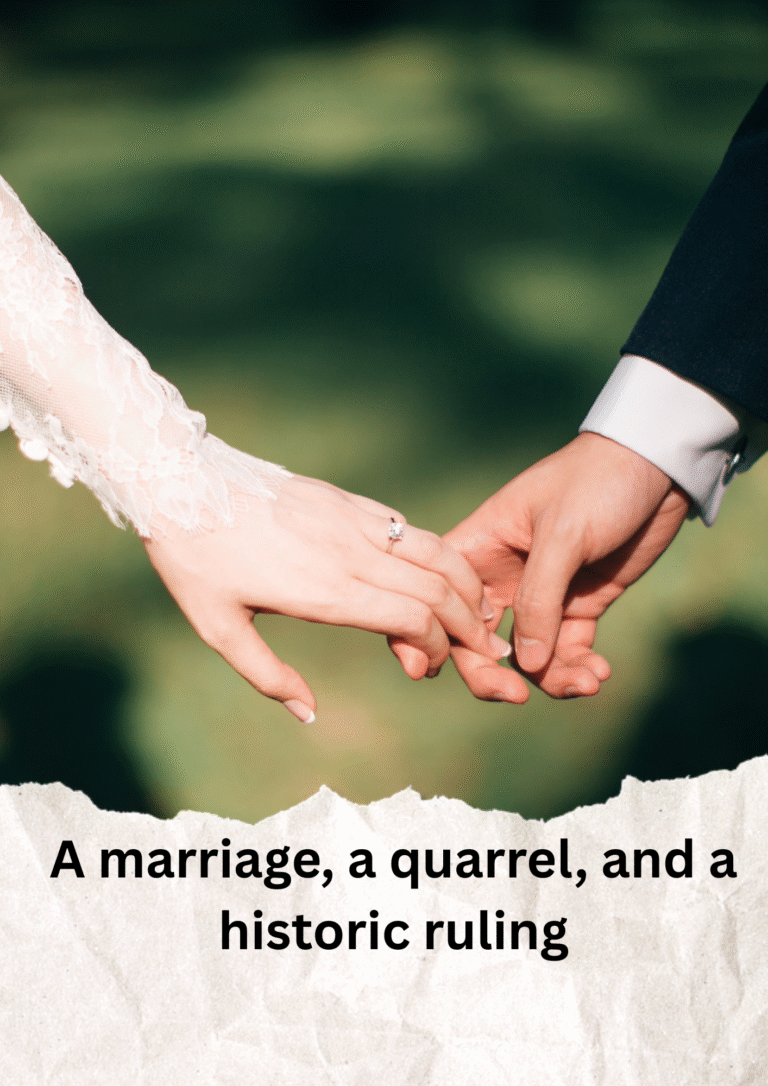Landmark Victory for Women’s Rights: Pakistan’s Supreme Court Ruling on Marriage Dissolution
Promises recorded in their Nikah Nama—including a dower of Rs. 500,000, 50 tola gold, and a portion in a house—were followed in 2007 when Dr. Faryal Maqsood and Khurram Shehzad Durrani married. Their love crumbled by 2012. What followed was a 12-year legal fight before the Supreme Court of Pakistan that resulted in an October 2024 decision redefining marriage dissolution rules and strengthening women’s rights in family conflicts.
This is the account of how Pakistan’s highest court rendered justice—and why it matters for innumerable families.
The Case: What Happened?
In 2007, Faryal and Khurram tied the knot; in 2008, they had a son. They started to drift by 2012. Faryal reported:
- Unpaid dower (home portion + gold + Rs. 500,000+)
- Articles on dower (51 tola gold)
- Maintenance for their son
She said Khurram had ended the marriage by verbally divorcing her. He refuted this and asked for restoration of conjugal rights, essentially mandating her to return.
Divergent Rulings by Lower Courts:
Trial Court (2014):
- Granted partial dowry and a house share valued at Rs. 500,000.
- Denied 50 tola gold dower; assumed it had been paid for.
- Ordered Khurram to pay the dower before enforcing conjugal rights.
Court of Appeals:
- Wrongly dissolved the marriage using Khula (which was not requested).
- Denied her dower rights, stating Khula forfeits them.
Peshawar High Court:
- Dissolved the marriage citing cruelty—something Faryal never claimed.
- Restored her claims for dower and dowry.
Appealing to the Supreme Court of Pakistan, both sides sought a historic decision.
The Ruling of the Supreme Court: Important Notes
The Supreme Court’s decision on marriage dissolution clarified important legal doctrines:
- Dower/Dowry Stipulations Are Binding
Courts must enforce dower/dowry terms specified in the Nikah Nama, a binding contract.
Faryal’s claims for Rs. 500,000, the house portion, and 51 tola gold were upheld. - Khula Requires the Wife’s Consent
Courts cannot mandate Khula. The appellate court erred, as Faryal never sought it. - Unauthorized Second Marriage: A Strong Ground for Divorce
Khurram married again without Arbitration Council approval, violating the Muslim Family Laws Ordinance (1961).
This alone justified divorce under the Dissolution of Muslim Marriages Act (1939). - No Evidence of Cruelty: Not Grounds for Dissolution
The High Court erred in referencing cruelty without proof.
Why This Ruling Matters
The ruling sets a strong precedent: dower and dowry protect women’s financial rights.
Men must follow legal procedures for a second marriage. Courts cannot impose Khula, as it is the wife’s choice.
“This decision guarantees fairness in marriage dissolution cases, preserving both Islamic values and statutory protections.”
Key Takeaways from the Case
- Always record dower and dowry in the Nikah Nama.
- Unauthorized polygamy can break a marriage.
- Courts must honor women’s autonomy in Khula matters.
See more: [How to Protect Your Rights in a Nikah Nama] (internal link)
FAQ
Q: Is it possible for a husband in Pakistan to have a second wife without permission?
A: Under the 1961 Ordinance, he must obtain Arbitration Council clearance—or risk marriage breakdown.
Q: Does Khula mean losing rights to dower?
A: Not necessarily. Courts cannot mandate Khula or deny dower without the wife’s consent.
Q: Where can I view the full ruling?
A: Visit the Pakistan Supreme Court website.
Ultimately, this Supreme Court decision on marital dissolution advances equitable family laws in Pakistan. More than just resolving one case, the court has reinforced women’s legal protections by upholding contracts and rejecting flawed judgments.




